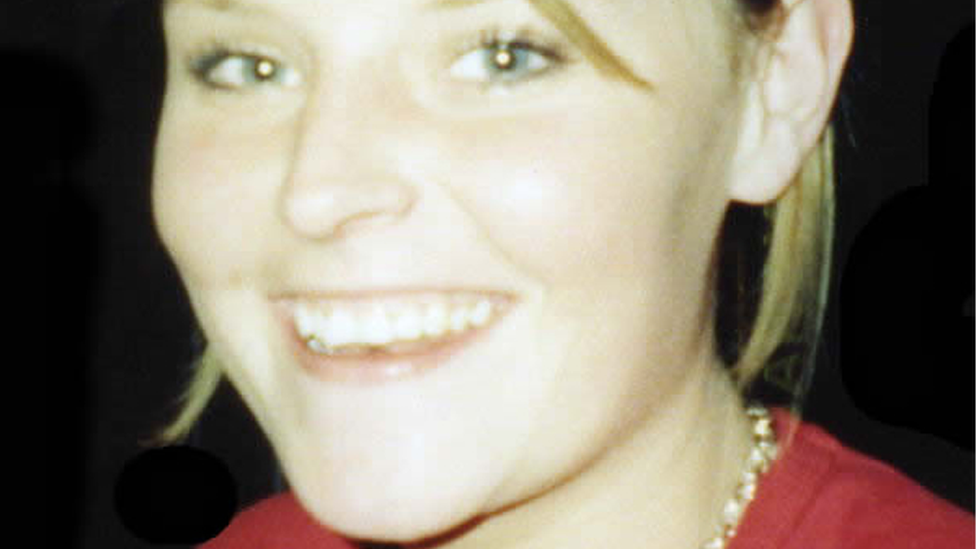Missing people: 'Life is put on hold' for Irish families
- Published
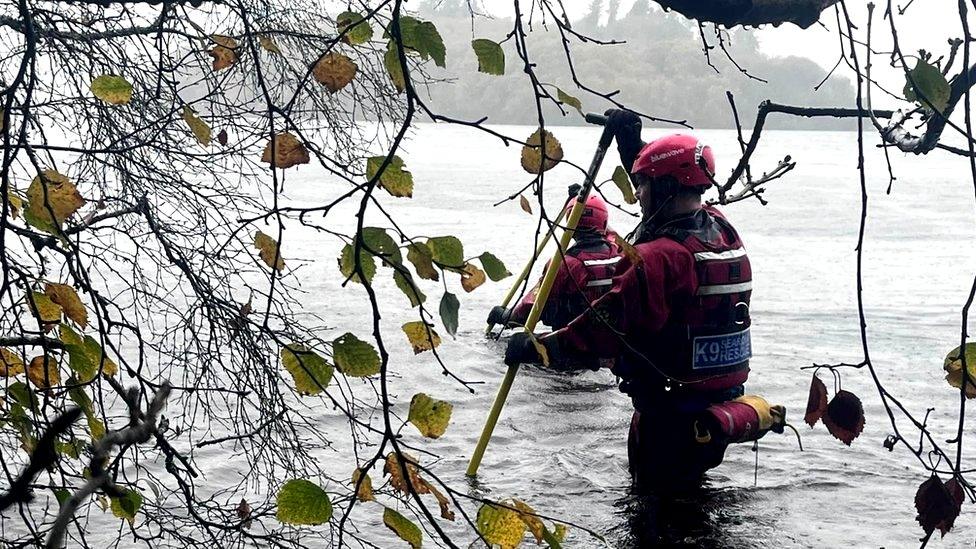
Thousands of people are reported missing in Northern Ireland every year
The case of missing woman Nicola Bulley dominated headlines in the UK this year.
For a couple of weeks the relatively forgotten issue of the missing was front and centre of our news feeds.
The number of missing in Northern Ireland is considered low compared with other parts of the British Isles.
However, police figures for the year between 1 April 2021 and 31 March 2022 provide some context for what is considered low.
In that period there were about 9,700 reports concerning almost 5,000 individuals.
Twenty-eight children were missing for more than seven days, as were 83 adults.
There are currently 59 people in Northern Ireland listed as long-term missing, according to the police.
'I knew in my gut that something was wrong'
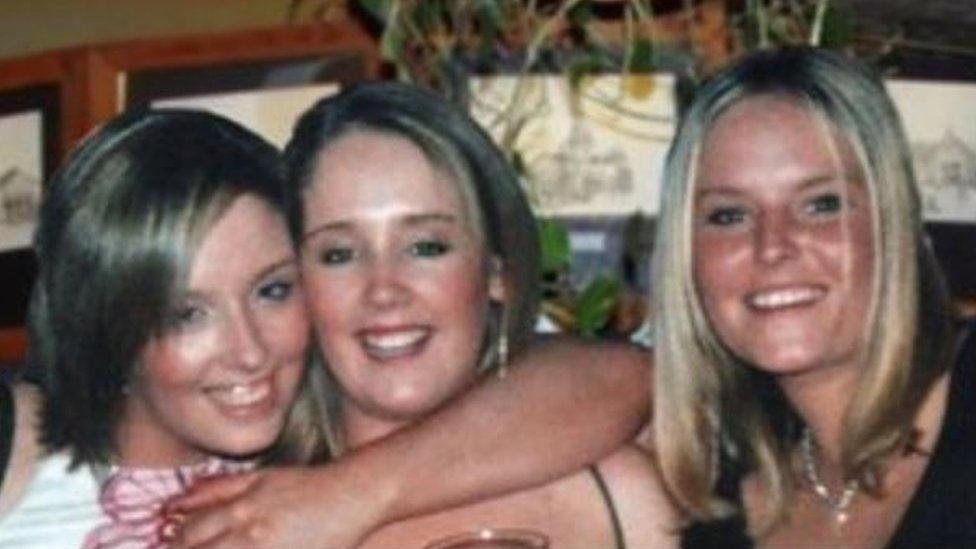
Lisa Dorrian (right) with her sisters Michelle and Joanne has been missing for 18 years
Perhaps the most high-profile missing person case in Northern Ireland has been that of 25-year-old Lisa Dorrian from Bangor, County Down.
Lisa was last seen at a caravan park in Ballyhalbert, County Down, in the early hours of 28 February 2005.
On 13 March of that year a murder investigation opened. Despite hundreds of searches Lisa's body has never been found.
Lisa's sister Joanne said initially the family thought she was "just out of reach" and they would find her "very quickly".
"But I knew enough instinctively to get on to the police straight away," she added.
"I just knew in my gut that there was something wrong."
The following 18 years and the acceptance that Lisa was not coming home have affected the family in different ways.
"My mum never got over losing Lisa - all she ever wanted was to find her. Mum died seven years ago and we say she died of a broken heart, she was only 59," Joanne said.
"Me and my sisters have been able to carry on having a life around Lisa.
"We still have a life talking about her every day. We've went on to have our own families, careers, all of that.
"So life didn't stop but life certainly changed the day Lisa went missing for all of us."
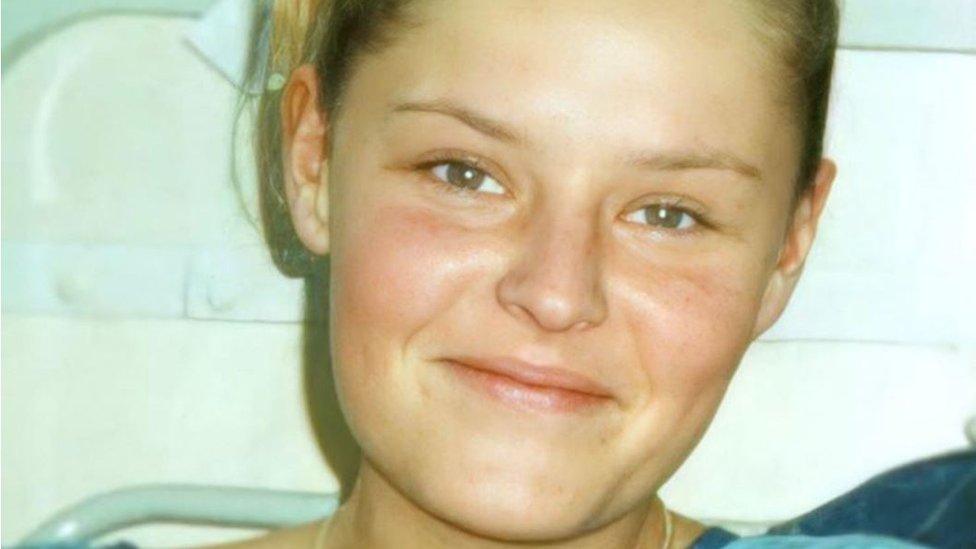
Lisa, 25, went missing in the early hours of 28 February 2005
Joanne said the fact that the family knows Lisa is gone has, in a way, lessened their torment.
"It's so difficult for people when they live in that limbo - are they still alive or are they dead? I think I feel better having some kind of answer, as brutal as it is, I feel better knowing," she said.
"If I knew Lisa was out there alive how could I sit in the house and drink tea and laugh with my friends?"
She said she believed "justice will come before finding Lisa".
"Lisa's case is still really active. I know it's 18 years old but it's still a live case, it has never gone to cold case or legacy and to be frank I wouldn't allow it."
Joanne now tries to help the families of other missing people.
"I like people to learn from our experience because you don't want to have to look back and say: 'If only the police had done this or if only we had known to ask this'," she said.
"I think any family of the missing would say it changes you as a person, you think about life differently, you think about people differently but it's a very individual journey."

There have been hundreds of searches for Lisa's body, including this one in May 2021 in Ballyhalbert
Last year the Department of Justice carried out a public consultation on Charlotte's Law.
Named after missing murder victim Charlotte Murray, the law would assign an additional tariff to a killer's sentence if they failed to reveal the whereabouts of their victim's body.
"Working closely with affected families, we are continuing to develop the detail of proposed recommendations following the consultation, which will be subject to the views of an incoming justice minister," a department spokesperson said.
'Absolutely, completely life is on hold'
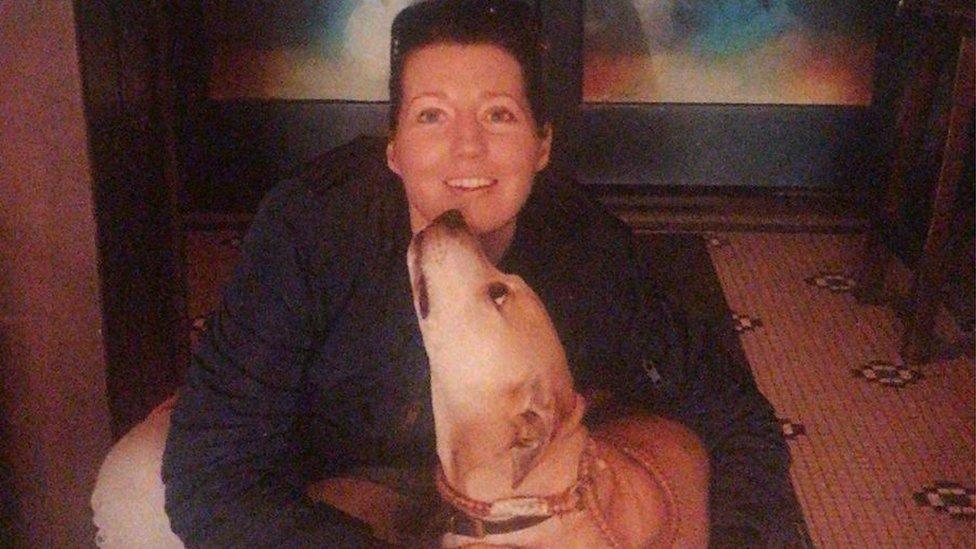
Irish woman Jean Tighe was reported missing in Portugal in 2020
A loved one who has gone missing while abroad can further complicate an already torturous experience for families.
County Cavan woman Leona Tighe's sister Jean was reported missing from a hostel in Parede in Portugal in July 2020.
She had been in Parede between February and May before returning to Ireland. She then went back to Portugal on 7 July and was reported missing six days later.
Her sister Leona said Jean, 38, had booked a flight to Dublin for 15 July but never got on it. There have been no known sightings of her since.
Friends became alarmed on 14 July but it was not until 18 July that a formal report was made to police
"A hostel worker said she saw Jean leave the hostel area on Monday 13 July 2020 with a man," Leona said.
"The hostel worker said the man Jean left the hostel with was Brazilian. How did he know he was Brazilian? Who is this hostel worker? How can he be so sure?
"There's just so many questions that are unanswered."
Lorena said police in Portugal did not contact the family during the early stages of the investigation.
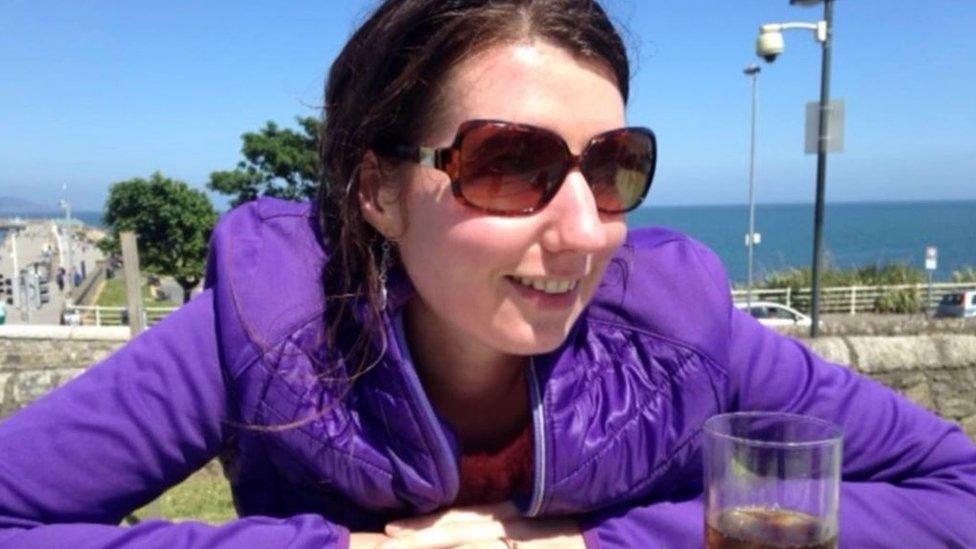
Jean's family have had no contact with her since 2020
She added: "Nobody ever contacted us to tell us they were concerned for the welfare of Jean, that she hadn't returned to the hostel.
"We became very worried about Jean when she didn't write home or didn't start to make her way home."
She said Jean's social media remained active with a logged action as recently as January 2023 but no-one has actually spoken to or seen her since she went missing.
She said her life is "absolutely, completely on hold".
"You have to get up obviously and go to work and work is a great thing, it's a great distraction and you have to keep going," she said.
"But you're always thinking: is there any other way to look at this? Are we looking at it in all the right ways?'"
Leona said there were theories that Jean could have started a new life or become involved in a cult but she also feared the worst could have happened.
"Show me the proof, give me the evidence," she said.
'People don't realise how many go missing'
Whenever a friend or loved one goes missing, contacting the police is the first thing to do.
They ask questions about the missing person to build a profile of them before beginning a search for the individual.
Voluntary organisations such as the Community Rescue Service (CRS) are often called in by the police to help with searches.
Sean McCarry from the CRS said its volunteers were involved in about 390 searches for missing people in Northern Ireland last year.
"We're very, very busy and it's partly to do with the high suicide rate in Northern Ireland," he said.
Ryan Gray is the founder of K9 Search and Rescue NI and has been involved in searches for missing people.
"In some of the cases you've built up a rapport and become friendly with the family," Ryan said.
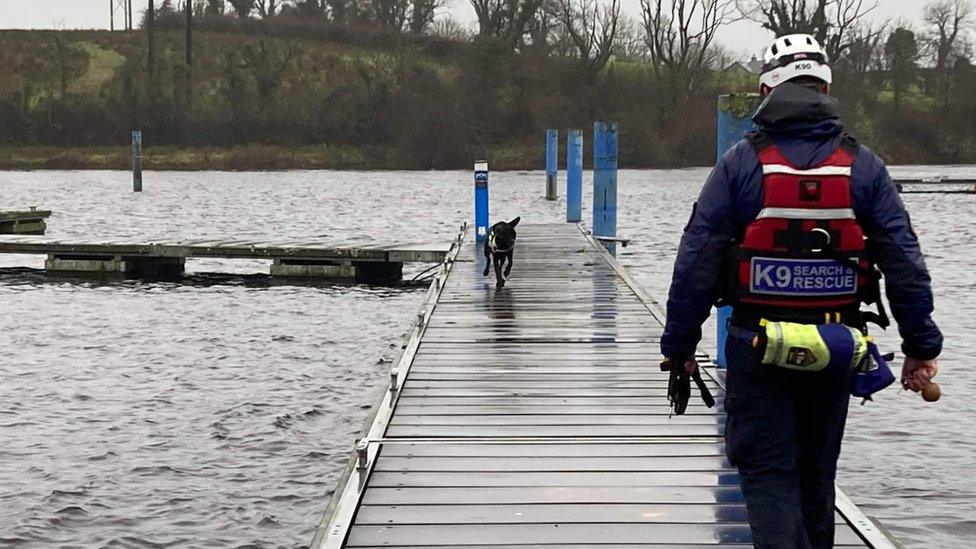
K9 Search and Rescue NI carries on searches across Ireland
"It's a very sad time for them so we just support them as best we can.
"If we locate someone alive then it's absolutely fantastic and you've got the satisfaction of saving a life and getting someone home or getting them into the system of mental health help."
He added that while it was incredibly sad when a body is found, being able to return them to loved ones can "allow them to start the grieving process".
Ryan said it can be hard to keep emotion out of the job.
"I don't think the general public realise how many people go missing each year.
"I'd imagine they don't really think about it until it comes to their doorstep."
If you have been affected by any of the issues in this article you can find information about organisations that can help on the BBC Action Line website.
Related topics
- Published7 December 2022
